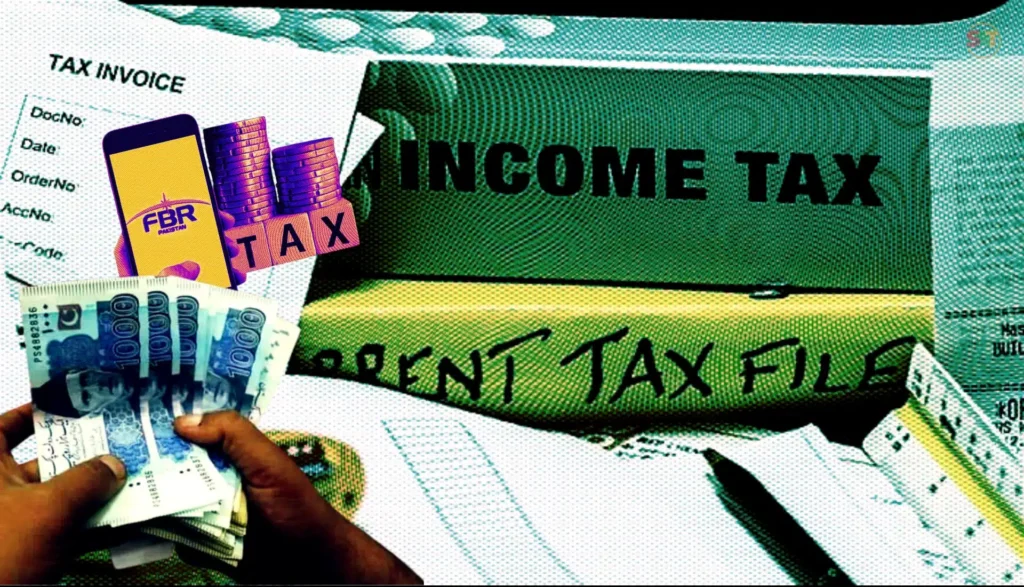
Pakistan’s tax system is one of the most extortionist, unpredictable, and counterproductive fiscal frameworks in the world.
Instead of fostering economic growth and encouraging investment, it disproportionately penalises documented businesses and salaried individuals while sparing those who remain outside the tax net.
This systemic inefficiency and unfairness have long stifled Pakistan’s economic potential, discouraging both local and foreign investment while placing an unfair burden on law-abiding taxpayers.
One of the most glaring flaws in Pakistan’s tax system is its over-reliance on indirect taxes and its persistent failure to bring the informal economy into the tax net.
According to estimates, Pakistan’s informal economy is nearly as large as its formal economy, yet it contributes little to the national exchequer.
Rather than enforcing taxation across the board, the government disproportionately targets already-documented businesses and salaried individuals, treating them as an easy source of revenue while ignoring vast segments of tax-evading enterprises and individuals.
A significant portion of the country’s tax revenue comes from indirect taxes such as sales tax, petroleum levies, and customs duties.
These regressive taxes disproportionately affect lower-income groups, making essential goods and services more expensive.
Meanwhile, the corporate sector and documented businesses bear an excessive tax burden, often facing double taxation, arbitrary demands, and an ever-changing regulatory environment that hampers growth and expansion.
The unpredictability of Pakistan’s tax system is another major issue that deters compliance and economic participation.
The Federal Board of Revenue (FBR), the primary tax-collecting agency, has a long history of using coercive measures to meet unrealistic revenue targets.
Taxpayers frequently complain of harassment, arbitrary tax notices, and heavy-handed audits that seem designed more to extract bribes than to ensure compliance.
Businesses often find themselves at the mercy of tax officials who exploit loopholes to impose undue financial burdens, creating an environment of fear rather than one of trust and cooperation.
This extortionist approach has serious economic consequences. Instead of encouraging voluntary tax compliance, it incentivises businesses to remain in the informal sector, where they can avoid taxes altogether.
It also discourages foreign investors who seek stable and predictable tax regimes before committing capital.
Investors look for clarity in tax laws, consistency in implementation, and a regulatory framework that does not arbitrarily change with shifting government priorities.
Unfortunately, Pakistan offers none of these guarantees.
The erratic nature of Pakistan’s tax policies exacerbates its economic woes.
Frequent changes in tax rates, unpredictable policy shifts, and a lack of long-term fiscal planning make it difficult for businesses to operate efficiently.
Successive governments have relied on short-term revenue measures—such as imposing new taxes on existing taxpayers—rather than broadening the tax base to include those who evade taxation.
For example, in recent years, various finance bills have introduced ad-hoc taxes on already-taxed sectors, including telecom services, banks, and large-scale industries.
The corporate tax rate in Pakistan remains higher than in many regional competitors, making it difficult for domestic businesses to compete internationally.
Such an unstable tax environment forces businesses to adopt short-term strategies rather than invest in long-term growth, research, and job creation.
The most unfortunate aspect of Pakistan’s tax structure is that those who honestly report their income and conduct business transparently bear the brunt of taxation.
Salaried individuals have their taxes deducted at the source, leaving them with no option but to comply.
Meanwhile, businesses that voluntarily register with the FBR face numerous tax burdens, including corporate tax, sales tax, and withholding tax obligations that make it difficult to sustain profitability.
On the other hand, vast segments of the informal economy, including retailers, traders, and small businesses, operate outside the tax net with impunity.
Despite repeated attempts to introduce documentation measures such as tax identity numbers and digital payment systems, resistance from powerful lobbies has prevented meaningful reforms.
The result is an unjust system where tax-compliant citizens and businesses bear an undue burden while those who evade taxes go unpunished.
Investment, both domestic and foreign, is critical for economic development.
However, Pakistan’s tax system actively discourages investment by creating an environment of uncertainty and excessive regulation.
A high tax burden, coupled with an arbitrary and often corrupt tax administration, has driven investors away to more business-friendly destinations such as India, Bangladesh, Vietnam, and the UAE.
Foreign investors are particularly wary of Pakistan’s taxation policies, which often change with little notice.
The lack of legal protection against retrospective taxation and arbitrary fines means businesses face significant risks when entering the Pakistani market.
Even local entrepreneurs find it difficult to expand their operations due to the high cost of compliance, discouraging innovation and job creation.
A complete overhaul of Pakistan’s tax system is necessary to create a more business-friendly and investment-oriented economy.
Pakistan’s tax system is fundamentally flawed, acting as a deterrent rather than an enabler of economic growth.
By disproportionately taxing documented businesses and individuals while allowing the informal economy to thrive untaxed, the country is sabotaging its own financial stability.
The extortionist and unpredictable nature of the tax regime has driven away investors, stifled entrepreneurship, and burdened the working class. Unless Pakistan undertakes comprehensive tax reforms to create a fair, transparent, and business-friendly environment, it will continue to struggle with low revenue collection, sluggish economic growth, and an ever-widening fiscal deficit. The time for change is now.






